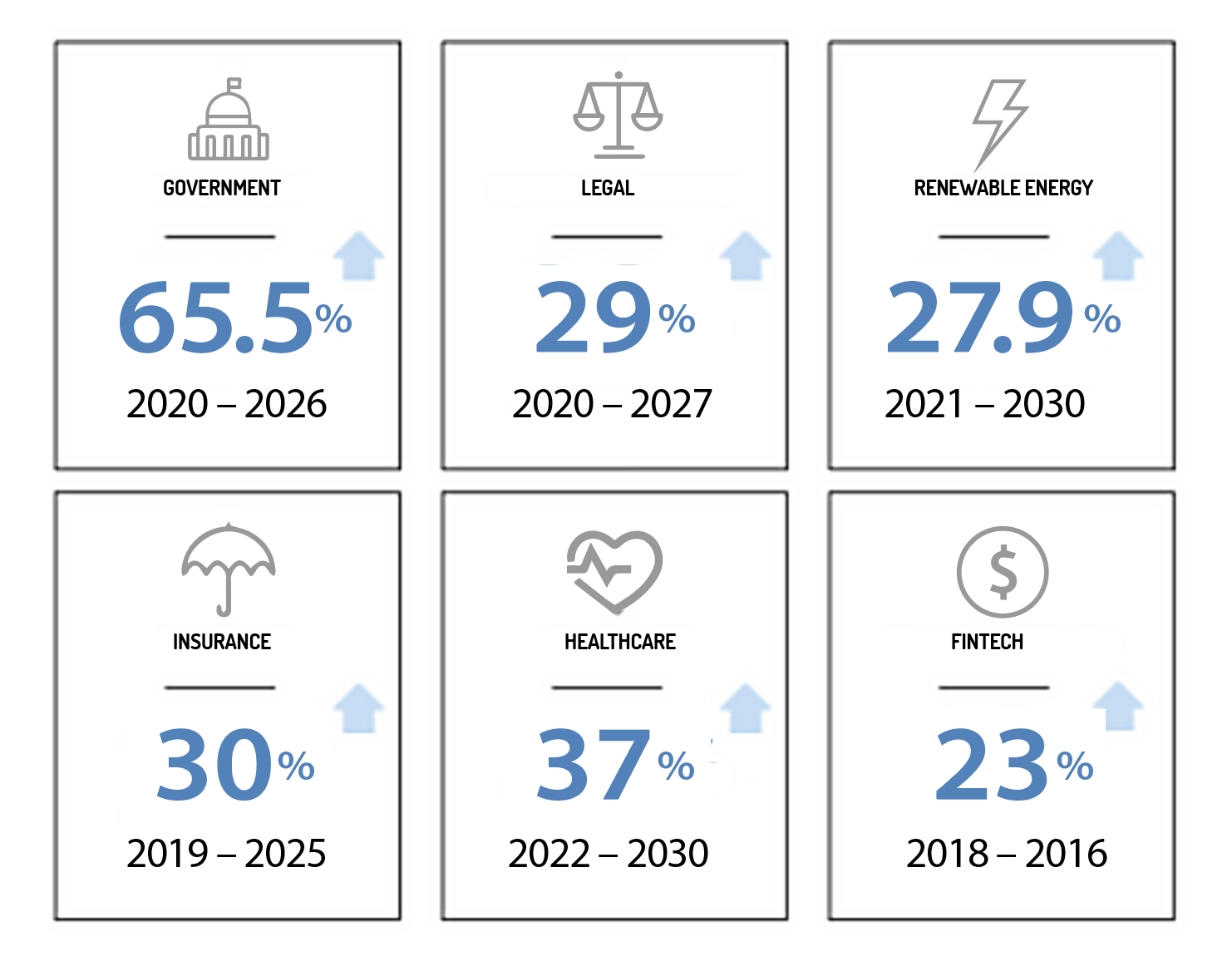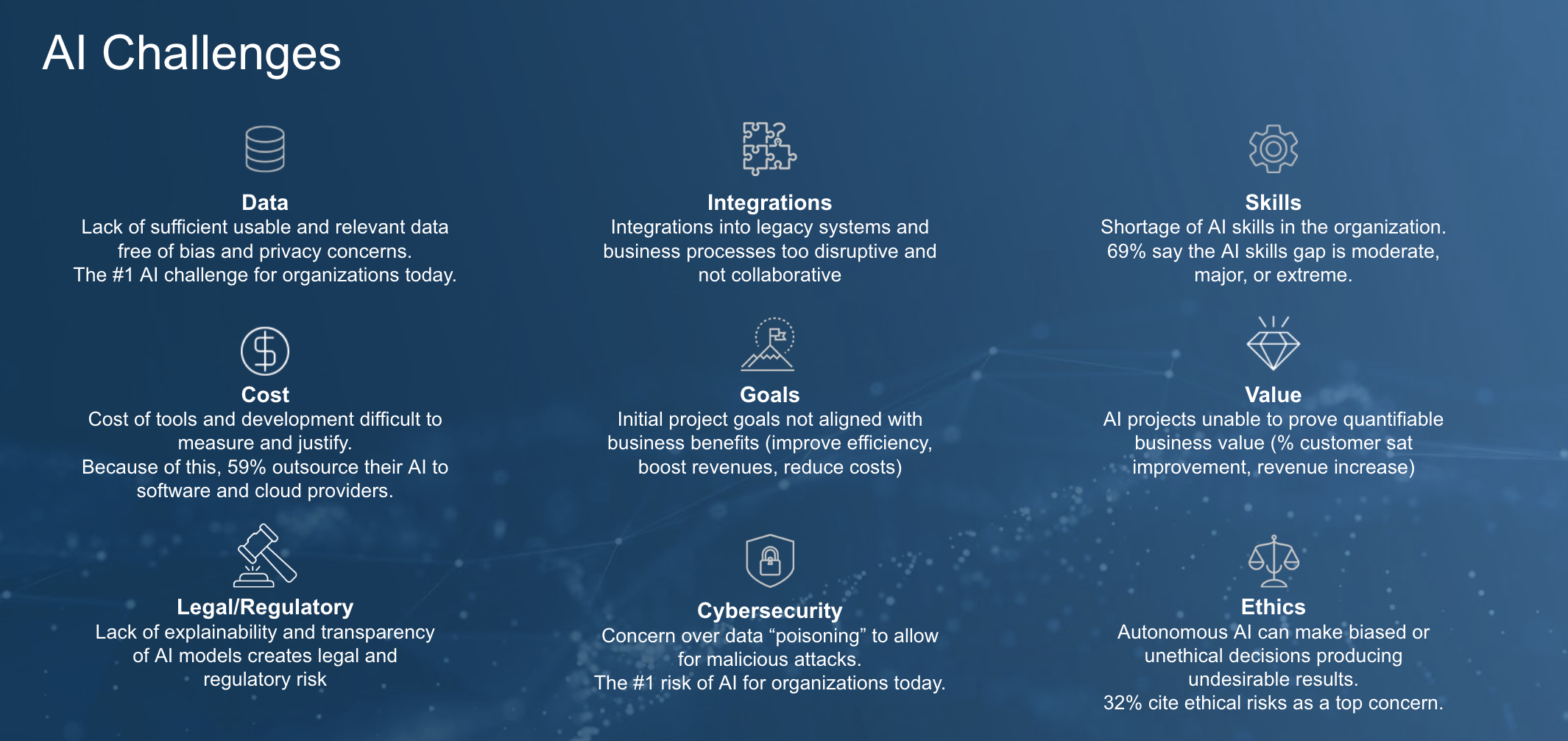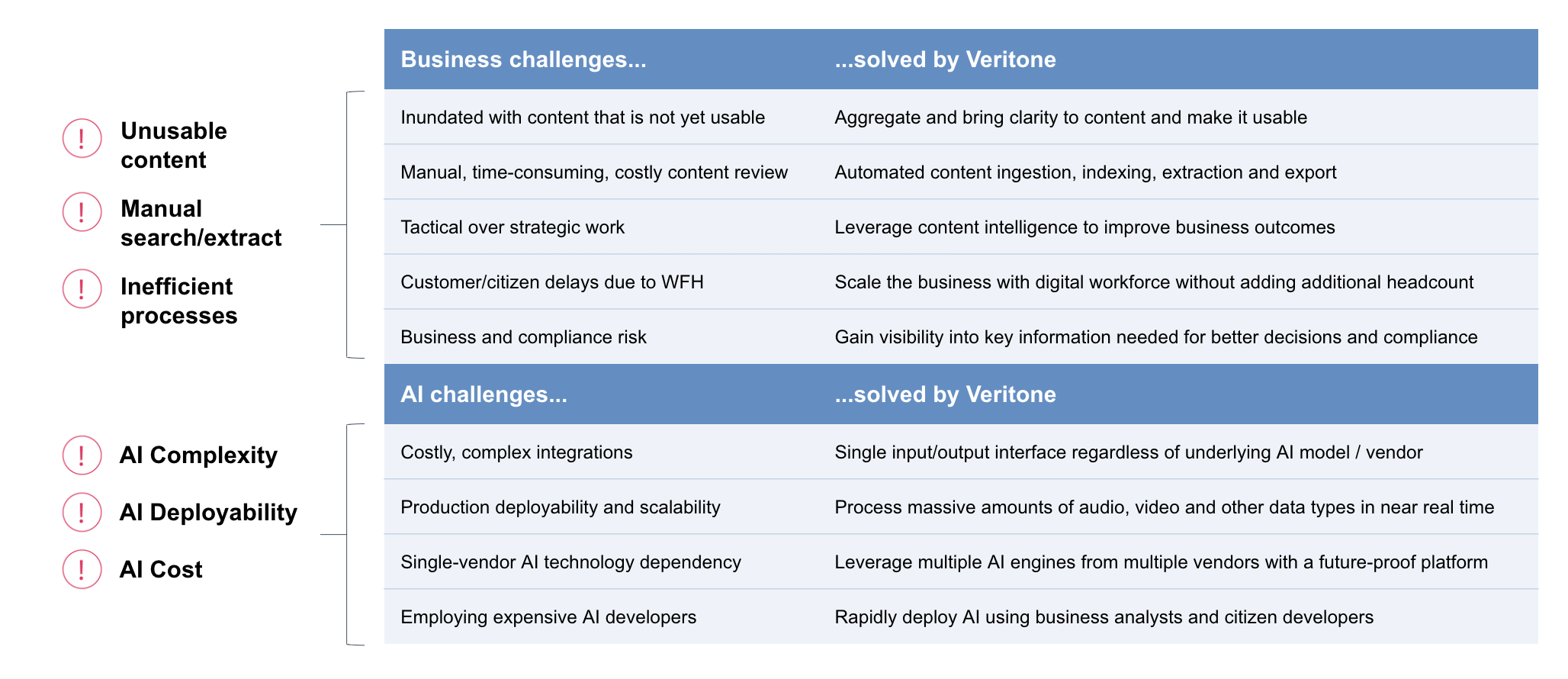In the previous blog, we defined Enterprise artificial intelligence (AI), talked about how it was different from consumer AI, why an enterprise AI platform, what companies should use AI, and mapped out what we’ll cover in future articles.
In this second article, we intend to dive deeper into Enterprise AI adoption, exploring:
- A look at the maturity of AI in the enterprise
- Why are enterprises adopting AI?
- Extending capability: adopting AI/ML for business
- What challenges do enterprises face adopting AI?
- How is Veritone driving widespread AI adoption?
A look at the maturity of AI in the enterprise
AI adoption was steadily on the rise as people moved beyond digital transformation. The pandemic further accelerated this trend. As a result of the Covid crisis, 52% of companies accelerated their adoption plans with 86% stating that AI is emerging as a mainstream technology in their company.
In the most recent State of AI survey by McKinsey, respondents said that AI as a prospective technology remains high. Almost two-thirds of those surveyed said that their companies’ investment in AI will rise over the next three years. This sentiment has remained strong since the previous year’s survey.

Just over half of enterprises have established plans to implement AI to automate many of their processes. A quarter of companies are already in the middle of doing that. With supply chain shortages and other effects caused by the pandemic, AI is poised to have a big year. But to understand these adoption metrics, we must look at the underlying drivers.
Why are enterprises adopting AI?
When companies begin their digital transformation, they start facing new, maybe unexpected challenges. Having access to an unprecedented amount of data, from content and its associated structured and unstructured data to other forms of raw data collected by systems overwhelms legacy processes currently requiring a lot of human intervention.
In Deloitte’s State of AI in the Enterprise report surveyed 2,875 executives from eleven of the top economies who have insight into AI strategies for adoption and investments within their respective organizations. The survey found that 66% of respondents said that AI is critical to success, with another 38% believing that using AI helps them differentiate from their competitors.
Most think about adding headcount as a solution to properly manage and surface insights, however, that approach can lead to errors and create an untidy data practice. Moreover, it simply costs too much and takes too long, throttling workflows and processes. Instead, organizations need to optimize their operations so they can scale with the business as it continues to grow.
Companies during the pandemic came to this conclusion out of necessity. With a reduction in headcount, they had limited resources to work with to effectively extract the total value from their data and its sources—that’s where AI came into play.
AI will shift how we work and ultimately create new jobs. By 2025, it’s estimated that AI will create 97 million jobs. This will cause workers to shift their skill sets to capitalize on these new opportunities. Furthermore, human involvement in the near future will remain a constant. The difference will come in the form of where human involvement remains or shifts in the process. Rather than increasing headcount for jobs that AI can do, it will enable organizations to invest in talent for other areas of the business.
What challenges do enterprises face adopting AI?
As we’ve already mentioned, not all companies are prepared to adopt this technology. Those who have yet to make their digital transformation need to focus on that first before worrying about AI. Next, the decisions that drive AI adoption should all surface back up to an overall data strategy and how it fits into their objectives. Everyone worries that they’ll end up behind their competition if they don’t adopt AI. But integration that leads to successful business impact and outcomes begins by defining that AI strategy.
Once an organization has transitioned to a fully digital practice, AI can help them overcome the challenges they will face because of that transformation, and these hurdles will vary depending on the scope of AI implementation.
These challenges include:

There are varying degrees of adoption of AI/ML for business. Some organizations implement new software and leverage vendor or partner support to deploy, integrate, and train their staff. For an enterprise-wide strategy, this becomes more of a machine learning operation practice (MLOps).
In this case, organizations will need to take a hard look at their teams and identify if they have any skill set gaps. Creating a cross-functional team including data engineers, data scientists, software engineers, and operation professionals is critical for success.
How is Veritone driving widespread AI adoption?
Veritone enables organizations to implement a successful AI practice with our Enterprise AI platform, aiWARE™. With access to over 300 best-of-breed engines that are constantly updated as the technology evolves, companies have more modularity, using the engines needed at any given moment with the trust that they are using the latest and greatest technology.
Organizations typically face challenges that fall into two core buckets: business challenges and AI-specific challenges when trying to implement a practice. Here’s how Veritone solves for these challenges:

Leveraging our proprietary AI Objection Notation (AION) media type, companies don’t have to spend thousands of dollars developing integrations for AI models. AION standardizes those integrations so that companies can bring their own models or any third-party models they are using, combining them with the ecosystem that’s already connected to the platform.
An AI platform like aiWARE acts as that foundational piece of technology that enables a whole set of use cases. In the next blog, we’ll look at four of the leading AI use cases we’ve seen firsthand with Veritone customers and partners.





